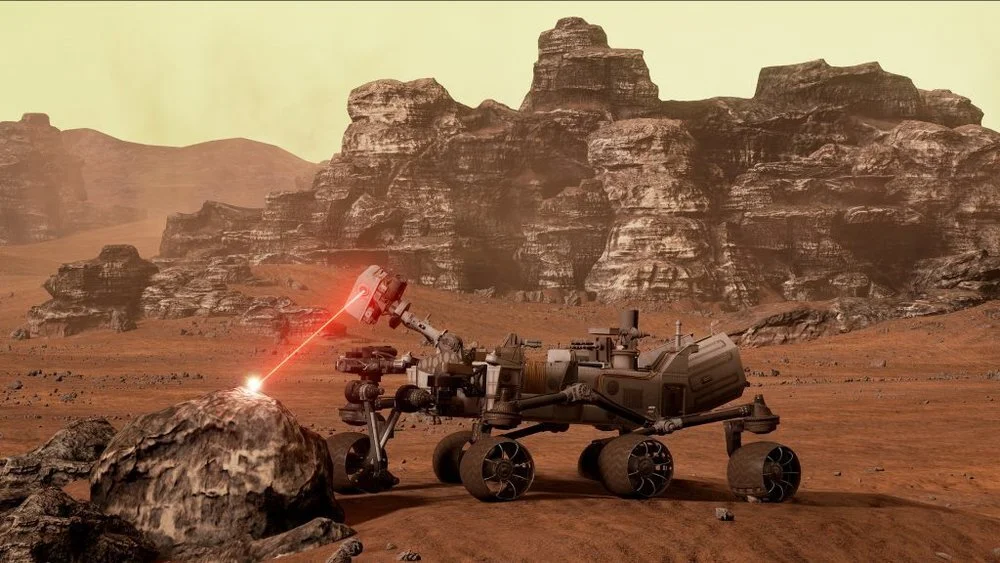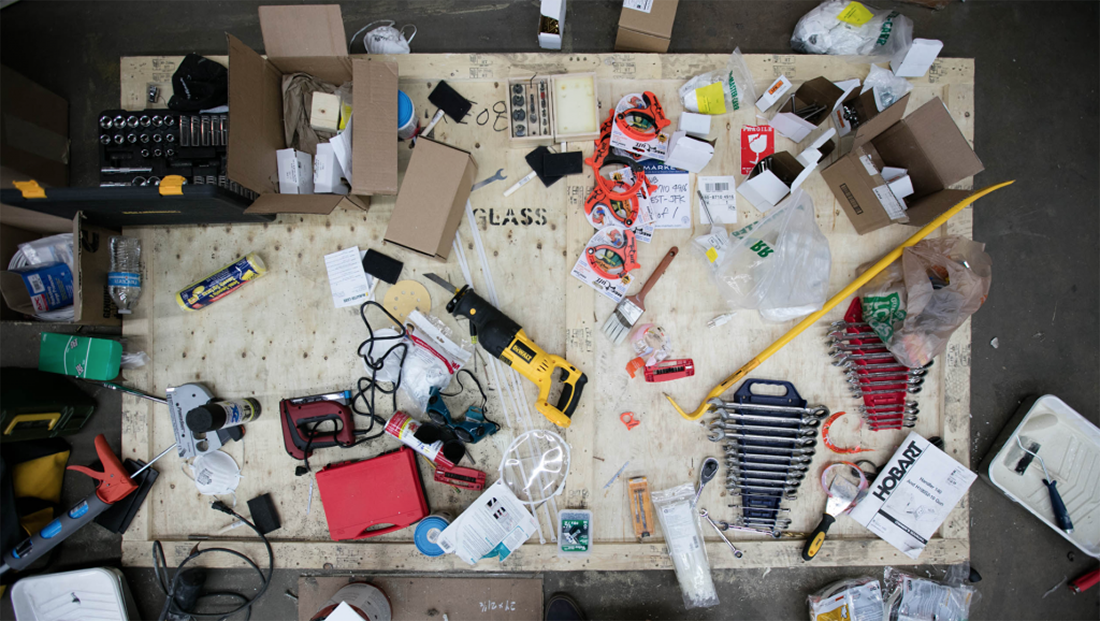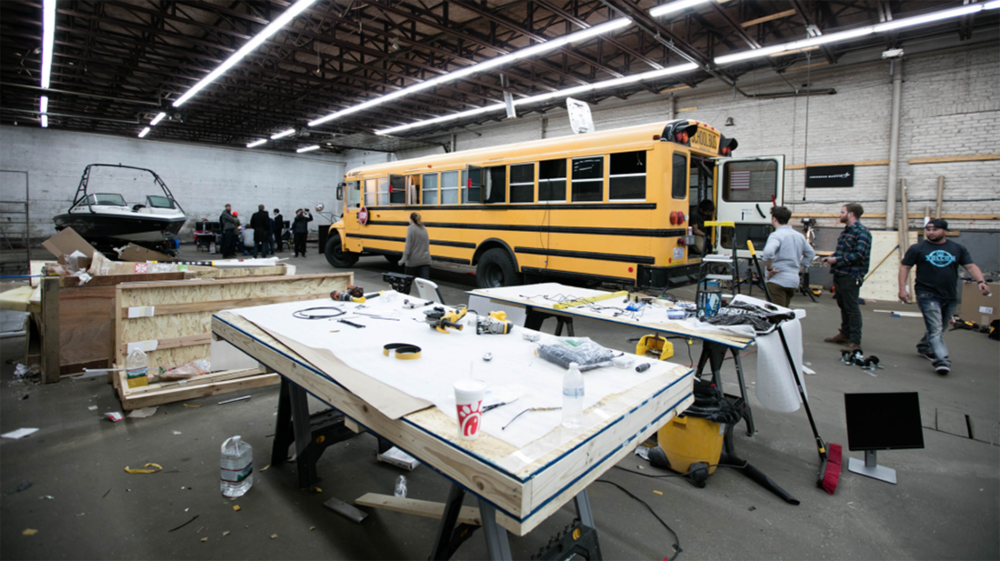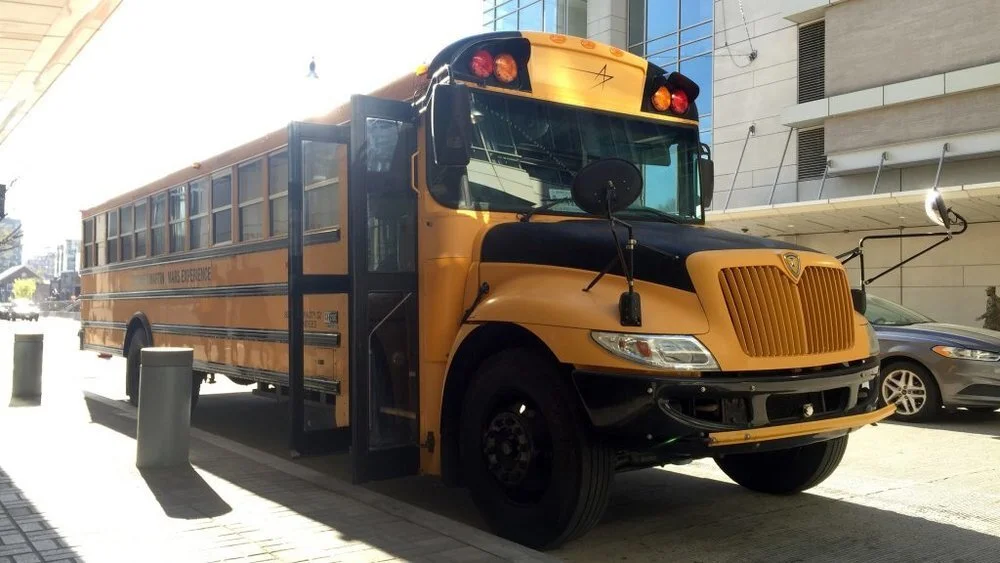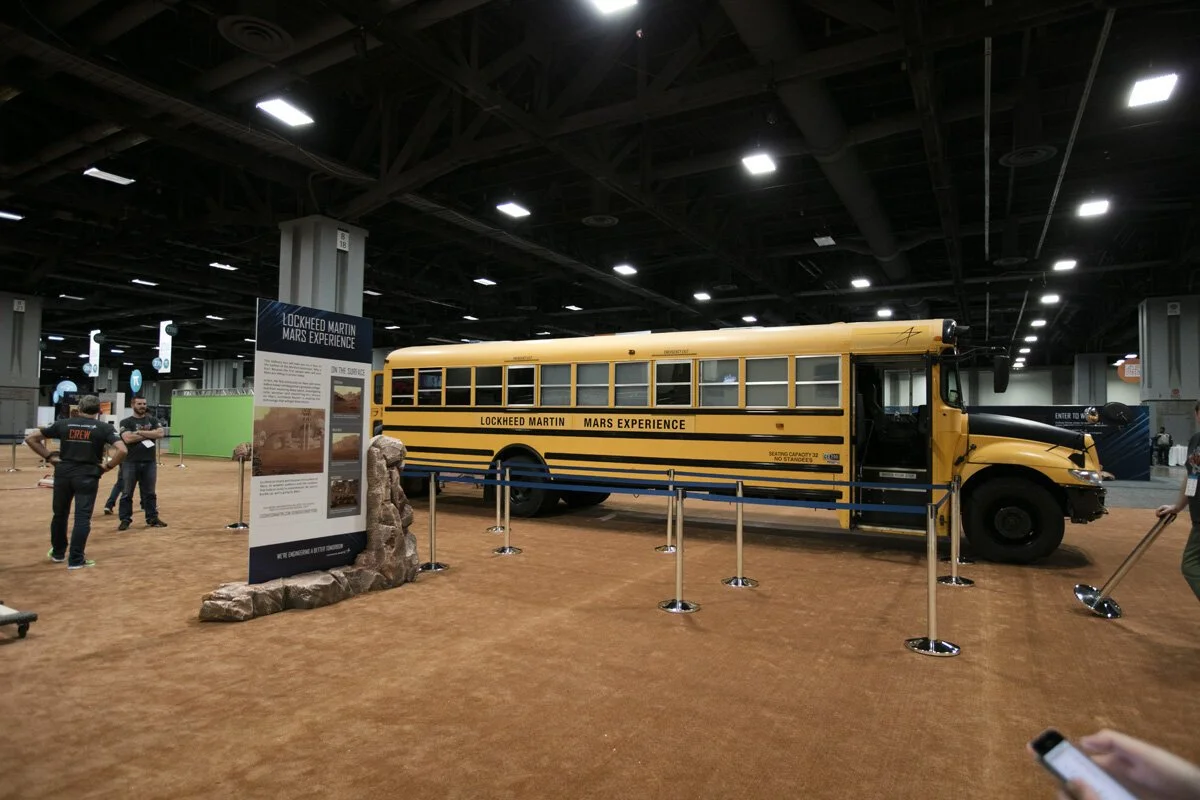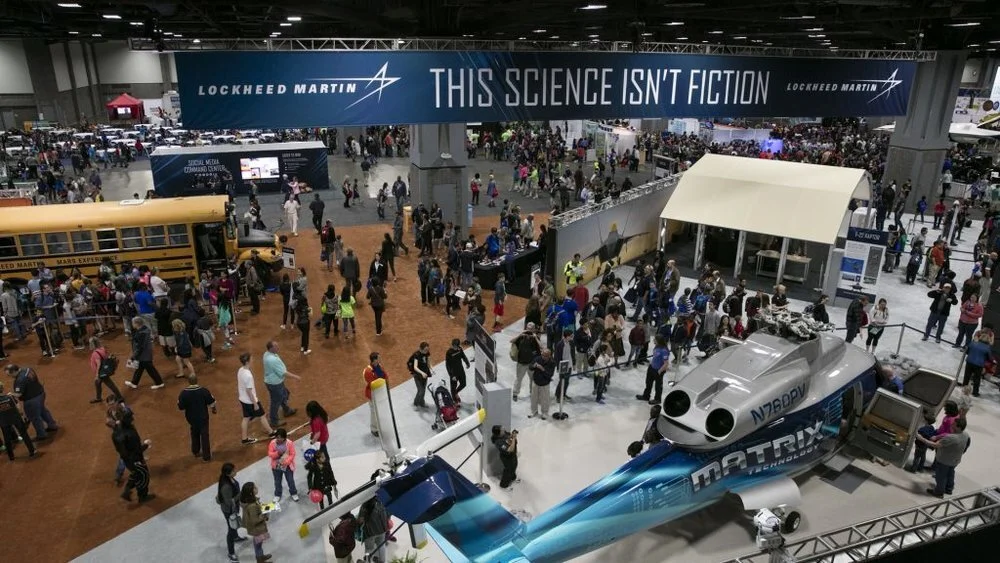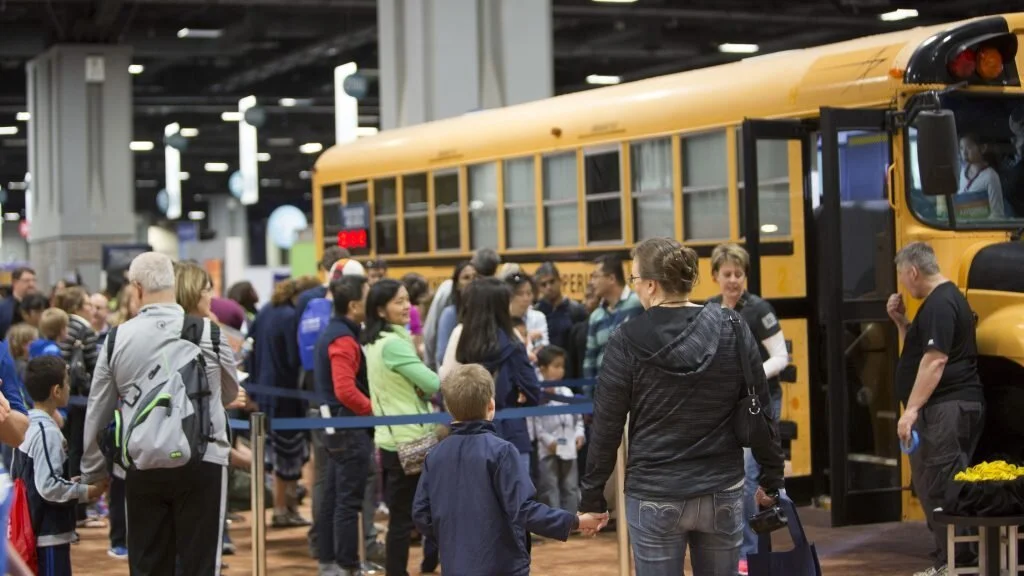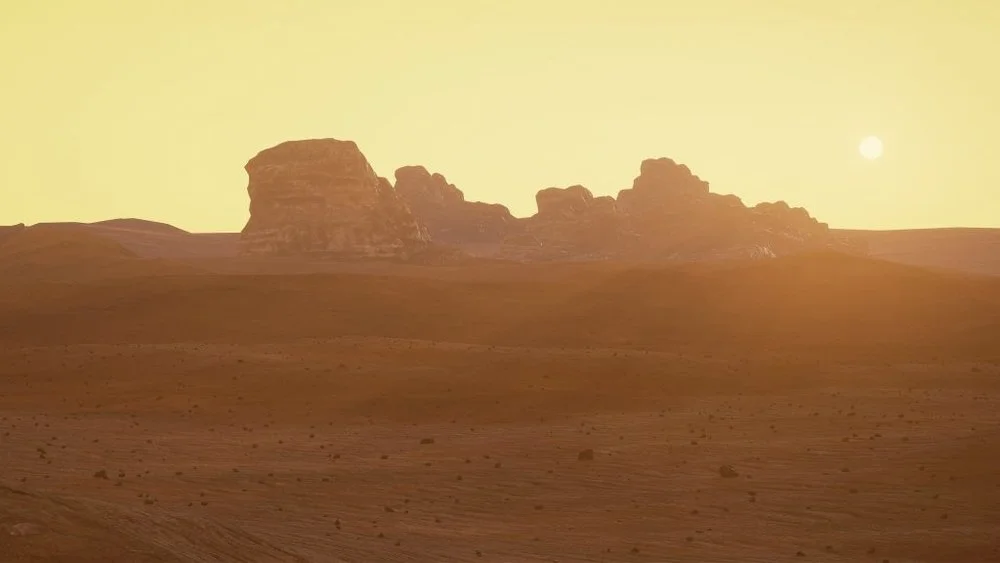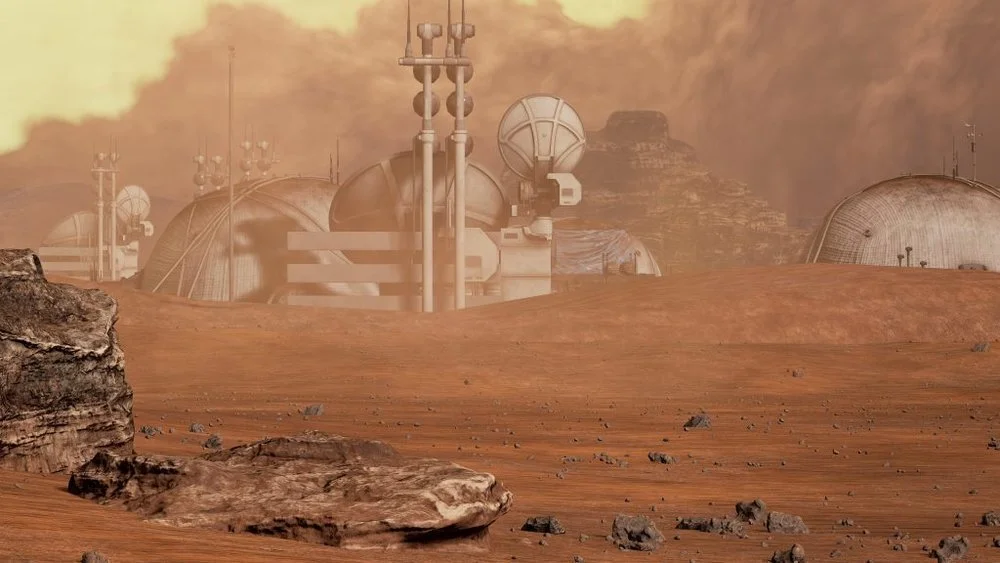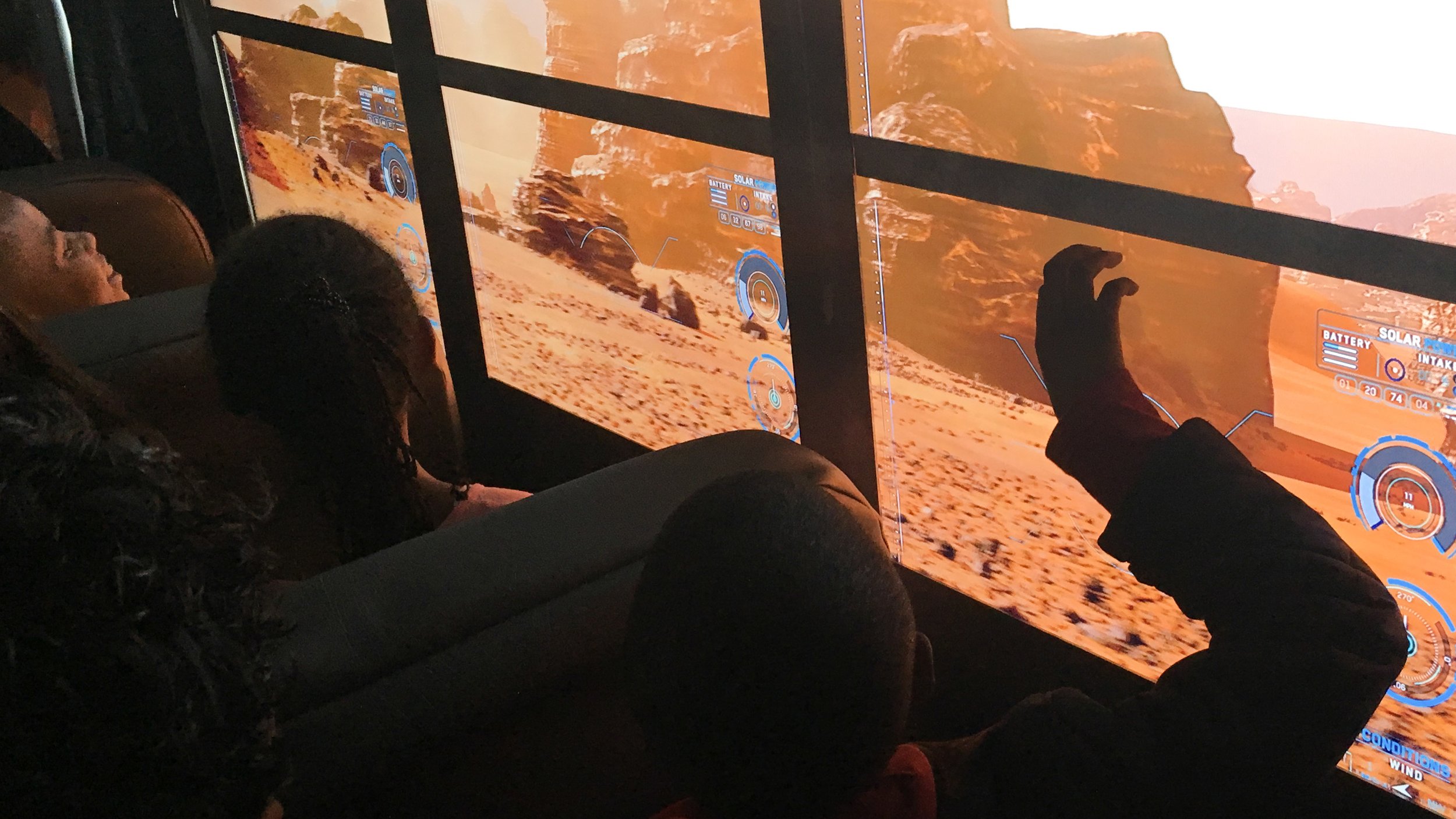
Lockheed Martin
Product Innovation / Experience Design / Group VR
Turning an ordinary school bus trip into an incredible journey to space
The Partnership
Lockheed Martin is leading the space revolution, but they want the world to know. We helped Lockheed Martin to target a generation that will be the first to colonize Mars tomorrow. The first people to live on Mars are sitting in school today. To inspire and engage the scientists and technologists of tomorrow, we collaborated with a talented team to create the world’s first Group VR experience to transport these students to the surface of Mars.
Lockheed Martin was the lead contractor on the Orion, the first spacecraft designed to take humans to Mars. But, Lockheed Martin was being overshadowed by pop culture. We needed to show that Lockheed Martin doesn’t just talk about space: They build spaceships. We wanted to get more kids to care about going into space because today’s kids will be tomorrow’s Martian explorers. So we decided: Let’s send them to Mars on a school bus. We created a VR experience, “The Field Trip To Mars,” that turns a ride on an ordinary yellow school bus into a virtual reality tour of 200 miles of the Martian surface. Lockheed Martin’s message was clear: Nobody can take us further.
The Technology
To be able to look out of the windows then have them turn into 4K screens, our technology partners designed combination of technology which comprised of switchable security film glass and a 4K display panel. The windows are transparent to start then the switchable film went opaque which blocked the outside image and helped reflect added light elements. The 4K panel dissolves from transparent white to the experience.
Using the Unreal Game Engine as the platform for the experience, the game devs at Framestore New York created a 200-square-mile “worldspace” based on the real street map of D.C. The team programmatically covered the area with geological features and painted objects along the bus’s route, and created a system that would allow real bus speed, GPS and accelerometer to be translated into Unreal, creating a real school bus that would exist inside the realm of a video game.
The bus itself became the headset: transparent 4K screens enabled passengers to look outside to D.C., before being transported to the rocky terrain of Mars. We created a control system that used the movement of the bus and translated it into the game engine. The controls combined off-the-shelf Maker community components including an Arduino kit with an industrial laser surface velocimeter. The rider feels the real motion of the bus and the content on the screens is synced. There are no 4D theater tricks created to simulate movements.
The Innovation
Custom built 80″ 4K transparent LCDs with switchable electric glass
Bus movement turned into real-time game controller
200 square-miles of real-world roads turned into a video game
One 12kw, 100 amp, 3 cylinder, 27 HP, liquid cooled, diesel generator
Four 1000w audio amplifiers
18 speakers
5100 watts of computer usage
30000 gigaflops of graphics processing power
One 12mW Class B laser
The Results
19 Cannes Lions
365,000 in-person impressions at the conference
2,500+ bus riders
2,210,209 online media impressions, and counting
Steve Frick (CAPTAIN, USN, RET.) NASA Astronaut
“It’s going to be just a great outreach tool,” Frick said, “having something mobile like that, that’s able to go out to where kids are and give them the experience first-hand of what it might be like to be on Mars. Hopefully it’ll get them wanting to learn more and look for other materials which we’re also hoping to provide [by] getting our online curriculum out into the schools.”
Michael Yapp (founder and director of Google Zoo) at C2
Notable Attention
Steve Frick (CAPTAIN, USN, RET.) NASA Astronaut
“It’s going to be just a great outreach tool,” Frick said, “having something mobile like that, that’s able to go out to where kids are and give them the experience first-hand of what it might be like to be on Mars. Hopefully it’ll get them wanting to learn more and look for other materials which we’re also hoping to provide [by] getting our online curriculum out into the schools.”
Michael Yapp (founder and director of Google Zoo) at C2


